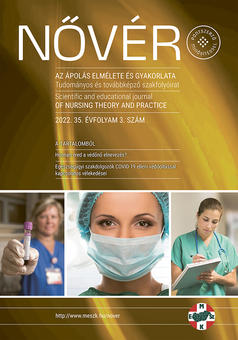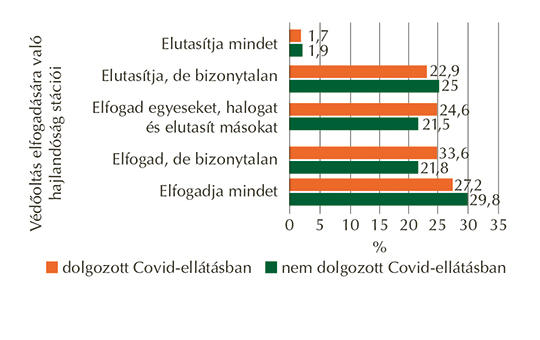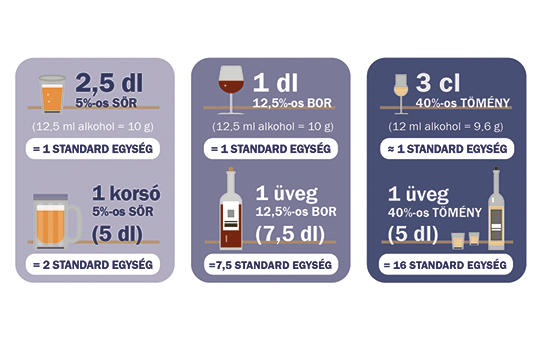The eLitMed.hu medical portal uses computer cookies for convenient operation. Detailed information can be found in the Cookie-policy.
Journal of Nursing Theory and Practice - 2022;35(3)
Content
[What is the origin of expression of „Védőnő” – Maternal Childhealth Nurse?]
[This article discusses the etimology of the Hungarian word ’védőnő’ (’a woman who protects’) designating a unique service in the Hungarian healthcare system. This service encompasses mother and child health nursing, health visiting and public health nursing. These healthcare professionals are responsible for the health and wellbeing of expectant mothers, the unborn child, newborn babies, infants, preschool children, schoolchildren and adolescents; they provide care for these groups within the family focusing on health protection and promotion and disease prevention. The Hungarian word derives from the notion of ’patron, patronage’ meaning guardian, protector, supporter. The history of the service in Hungary is also outlined.]
[Current issues in providing health care for sexual and gender minority individuals]
[In the past 40 years research studies related to the special health care for sexual and gender minorities have become widely known and the number of publications has increased in international medical databases. The characteristics of gender attraction and identity have an impact on developing a successful diagnosis, on determining the necessary screenings and treatments, and on performing preventive intervention since the sexual and gender minorities are at elevated risk for suicide. Apart from medical databases, best practices and guidelines are also provided by healthcare professional organizations and clinics committed to education and research as well. In addition to broadening knowledge, reducing unconscious prejudices and improving the doctor-patient communication would lead to a veritable leap forward in meeting the healthcare needs of sexual and gender minorities. ]
[Nurses’ opinion about Covid-19 vaccines during the pandemic]
[The aim of the present study was to assess how nurses react to and assess the level of acceptance of Covid-19 vaccines. We compared the level of acceptance with sociodemographic and work-related variables, symptoms of burn-out and depression. The present cross-sectional study was operationalized by a self-edited online questionnaire between 27/01/2022 and 12/02/2022. Data was analysed by descriptive statistics, Chi-square tests and Kruskal–Wallis tests (p <0.05). 57.8% of the 10,285 responders found the Covid-19 vaccines safe to use. Older age, male gender, marriage and being a widower, higher level of education, participation in Covid treatment, years spent in the healthcare system and work in primary care elevated the level of acceptance of vaccines. Worse mental status was connected to negative attitude towards vaccines. It can be stated that the acceptance of the Covid-19 vaccines is more typical among nurses; however, higher levels of depression and burn-out are connected to a more negative attitude towards, and to the rejection of vaccines.]
[The Occupational Health Nurse’s Role in the identification and management of alcohol-related problems]
[Unhealthy alcohol consumption can have detrimental effects for employees, increases the risk of job-related injuries and reduces productivity. The occupational health nurses could play a major role in recognizing and in the management of the workers affected by alcohol related problems. Nurses in large companies are in constant contact with the workers and are therefore in an excellent position to participate in comprehensive client assessment (including alcohol screening) and counselling. This article examines the prevalence of alcohol-related problems in the workplace and the prevalence and screening methods for alcohol-related problems in occupational health care. ]
1.
Clinical Neuroscience
[Headache registry in Szeged: Experiences regarding to migraine patients]2.
Clinical Neuroscience
[The new target population of stroke awareness campaign: Kindergarten students ]3.
Clinical Neuroscience
Is there any difference in mortality rates of atrial fibrillation detected before or after ischemic stroke?4.
Clinical Neuroscience
Factors influencing the level of stigma in Parkinson’s disease in western Turkey5.
Clinical Neuroscience
[The effects of demographic and clinical factors on the severity of poststroke aphasia]1.
2.
3.
4.
5.






